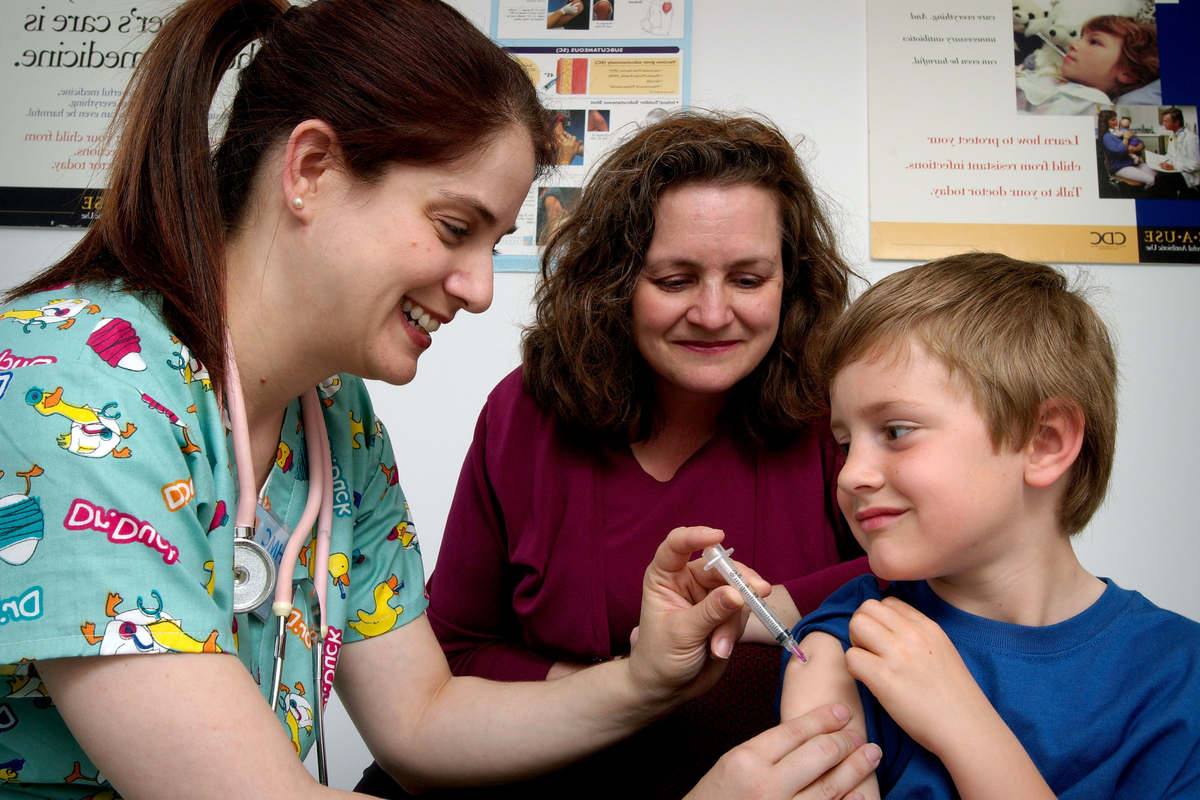A few days before the start of the school year, two scientists, Pierre Sonigo and Jean-Marc Sabatier, express reservations and make recommendations about vaccinating students. They are interviewed by Dr Jean-Michel Wendling*.


Pierre SONIGO, Former INSERM Research Director & Scientific Director – SEBIA
Jean-Marc Sabatier, Research Director at CNRS and Doctor in Cell Biology and Microbiology, affiliated to the Institute of Neuro-Physiopathology (INP), at the University of Aix-Marseille.
Are children better equipped than others to face the virus?
Pierre Sonigo- The endemic coronaviruses which surround us have been the great absentees of the communication on COVID-19 whereas they are the key to a coherent reading of the situation. The cross immunity induced by these historical childhood viruses is the best explanation for the miraculous safeguard of our children and young subjects during the emerging shock of 2020. These common viruses have been eliminated from our minds, but they are only benign for young subjects previously immunized by a not too old childhood infection and kill a few thousands of old or frail subjects every winter. Paradoxically, the spotlight has been put on the latest member of the family, SARS-COV2, quite traumatized as we were, and rightly so, by an undeniably catastrophic emergence.
Is there any reason to worry about children with the Delta variant?
P.S. – We must keep our heads and be serene. The anxiety-provoking and confusing communication is currently at its height, while the evolutionary convergence has been reached between SARS-COV2 and its endemic cousins, in the form of a variant with a strong mucosal tropism, extremely contagious, with a lesser pathogenic power: we are howling at the wolf with Delta, while we continue to totally ignore the other coronaviruses that surround us and which have exactly the same virological properties. The difference was only due to the lower immunity of the older population, a difference that has been well absorbed today.
SARS-COV2 is today the endemic 5ᵉ coronavirus. Let us accept to live with it as we did with its predecessors and hope very much that the coming autumn numbers will allow us to regain, failing a “life before”, some serenity and time to prepare long-term preventive actions and rigorous research, outside of an emergency context.
Are mRNA vaccines well suited for young people?
Jean-Marc Sabatier- Two mRNA vaccines (from Pfizer-BioNtech and Moderna) have been approved in France for the vaccination of children and adolescents (12 to 17 years old). One dose of Comirnaty vaccine (Pfizer-BioNtech) contains 30 micrograms of mRNA encapsulated in lipid nanoparticles, while one dose of Spikevax vaccine (Moderna) contains 100 micrograms of mRNA.
In the context of a vaccination strategy for 12-17 year olds (which seems inappropriate to me given the almost non-existent lethality of SARS-CoV-2 in this age group, and the fact that those vaccinated are also capable of transmitting the virus), these dosages initially developed for adults should be adapted, particularly in view of the much lower average body mass of the youngest and their more powerful immune response. For the latter, a relatively higher dose of vaccine could be harmful and lead to more side effects, without necessarily leading to a better immune response against the virus. For example, it appears that the Spikevax vaccine (about 3 times higher in mRNA than the Comirnaty vaccine) is associated with a higher incidence of myocarditis.
Do post-vaccination myocarditis cases affect young people more?
J-M.S.– Indeed, cases (although very rare) of acute myocarditis, but also pericarditis, are associated with the administration of mRNA vaccines, particularly in young men (14-29 years old). This is an inflammation of the heart muscle. This condition usually appears within three to fourteen days, and mainly after the second dose of the vaccine: it requires supportive treatment with anti-inflammatory drugs. Myocarditis is manifested by heart palpitations or arrhythmias, shortness of breath and/or sudden and transient chest pain.
What are your explanations?
J-M.S. – In my opinion, myocarditis is, in this case, a probable side effect linked to the overactivation of the renin-angiotensin system (RAS) of the myocardial cells by the vaccine spike protein. The proinflammatory AT1R receptor of the RAS would be directly responsible. The RAS is different between children, adolescents, adults, and the elderly. These additional differences could explain the increased susceptibility of vaccinated youth to myocarditis.
Can these complications, which tend to occur in young men, be explained by a hormonal factor?
J-M.S. The lower prevalence of myocarditis in young women could be due to the cardiovascular protection provided by estrogens (female hormones). It has been described that estrogens are protective against cardiovascular disease in women. Estrogens reduce the level of ACE2 receptors (ACE2 = “angiotensin converting enzyme 2” belonging to the RAS and coded by the X sex chromosome). This is the receptor to which the spike protein (viral or vaccine) binds in the heart.
Is vitamin D deficiency likely to promote side effects of the vaccine or affect its effectiveness?
J-M.S. Yes, because the vaccine spike protein produced from mRNA vaccines has been shown to have the potential, like SARS-CoV-2, to bind to its ACE2 receptor and overactivate the RAS. Vitamin D is able to slow down the overactivation of RAS by inhibiting renin production and will therefore counteract the onset of major side effects. A person vaccinated and deficient in vitamin D will not be “armed” to stop the side effects of the vaccine. This is why it is extremely important to have a good vitamin D status (40-60 ng of calcidiol per ml of blood) before any vaccination, which also allows the immune system to function optimally.
Is it possible to have a vitamin D deficiency when you are 18 years old? How do you know? And what should you do if you decide to be vaccinated?
J-M.S. It is possible to have a deficiency (12-30ng of calcidiol per ml of blood) or a deficiency (<12 ng calcidiol/mL) in vitamin D regardless of age. Studies show that the majority of the French population lacks vitamin D. If you do not take a vitamin D supplement (cholecalciferol = vitamin D3), you are more likely to be insufficient or deficient, because the production of vitamin D3 via solar UV and the diet are generally insufficient. It is therefore advisable to contact your doctor for a dosage and if the level is too low, proceed with a supplementation in order to reach a satisfactory level (>40 ng calcidiol/ml).
*Dr. Jean-Michel Wendling, a specialist in occupational health prevention in Strasbourg, is a scientific consultant for infodujour.fr.

